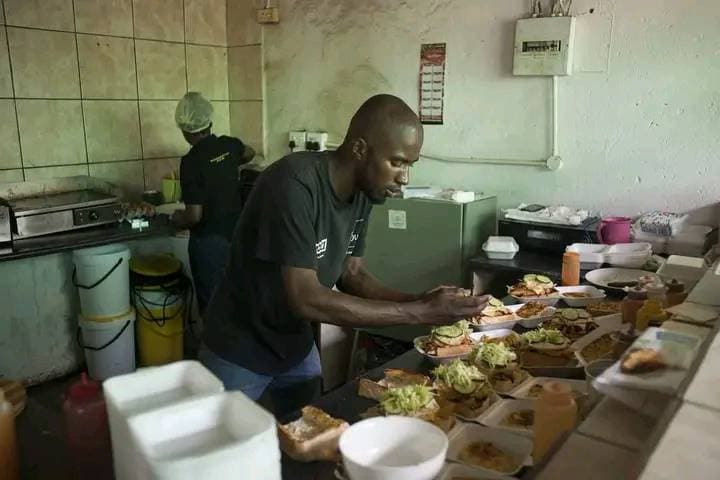How Miscalculating Kenyan Millionaire Was Left Broke After Leaving US
When Beatrice Mangure decided to set sail back to Kenya after a successful career in the US, she did not anticipate spending her later life in a single-roomed house in Kenya, barely struggling to make ends meet every month.
Her heartbreaking story started after her marriage failed while in Kenya, which compelled her to relocate to the US for a fresh start.
Born and bred in Embu, Mangure moved to Nairobi to attend college and later secured a job at a Non-Governmental Organisation (NGO) where she met her husband. Love brewed quickly and soon after, they tied the knot.
In the course of their six-year marriage, the duo was blessed with two children and to plan for their financial independence, the family decided to open a business.
Beatrice Mangure who ran a business in Georgia, US.
“Since we were starting a family, we decided to start a business which he was to run. I went to my place of work, took a loan and brought to him to start a business,” she recalled in an interview with Afrimax English, a YouTube channel.
Soon after, according to Mangure, her husband ended their marriage in what she claimed was his move to marry an uneducated woman. He reportedly settled down with their house help.
To deal with her heartbreak, Mangure decided to relocate to the State of Georgia in the US to start over.
“It was one of the hardest times in my life. I underwent a lot of pain and it was traumatizing. I got a visa and flew out of Kenya to start a new life in America,” she narrated.
“Life was not easy in America. Life was hard and you have got to work. It was not a joke. Since I left my family in Kenya and had left a family to support and had bills to pay in America, I worked very hard.”
After working a few employment jobs, she decided to through her hat into entrepreneurship and launched a catering business. Her meals of specialization were Kenyan cuisines such as chapatis and mandazis.
She toiled running her business for 10 years and enjoyed its fruits. She bought an apartment and owned two cars. Life was good.
“I worked extremely hard at a local restaurant in Georgia where Kenyans residing there called me Chapati lady. After a while, I felt employment was not going to allow me to fulfill my dream so I quit and began a catering company called New Light Catering which focused on African cuisine, I sold mukimo, chapati, mandazis,” she added.
In the course of running her business, Mangure fell three times which took a toll on her health and she decided to fly back to Kenya.
“When I relocated, I had carried all my stuff and put them in a container. I lost it all because it never arrived in Kenya. I lost things worth millions and I did not get anything. It was the most devastating time in my life,” she recalled.
Upon arrival in Kenya, she picked up her pieces and decided to venture into the business world first by setting up a tendering company as a disabled person. She was, however, unable to secure business.
Her sister then connected her to a friend only for her to lose an investment worth millions. At some point, she invested alongside some of her church members but lost all her money.
Now Weather Beaten Beatrice Mangure who ran a business in Georgia, US.
“I could get none (tender business) until one time my sister had a friend who was doing the same tendering process and she was getting different tenders from different companies and NGOs. So my sister introduced me to this lady. I agreed and we wrote a Memorandum of Understanding (MoU) where I would finance her business with the savings I had left. Unfortunately, she conned me the money and disappeared. I was too trusting because she had been recommended by my sister,” she lamented.
“I also invested in a church project which promised good returns but it incurred losses.”
She also tried her hand in politics, running for the Embakasi South MP, but was unsuccessful.
Now, Mangure runs a taxi business which she got from a good Samaritan for a daily fee.
“It is very challenging (the taxi business) because you have to pay the car owner every day and pay for the petrol which is expensive. Also, the commission charged by the digital taxi apps has to be settled at the rate of 25 percent per trip. However, a car is easy to drive and helps me with mobility,” she observed.
“I am pleading with viewers to help me get my own car to drive and get my daily bread. I know how the taxi business works.”



